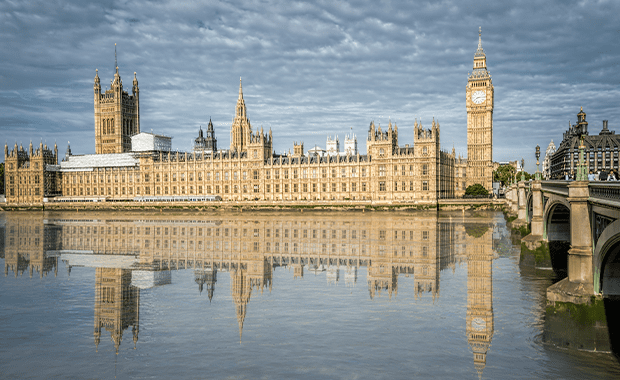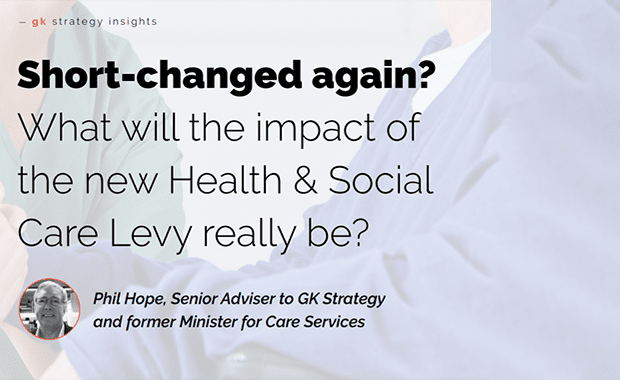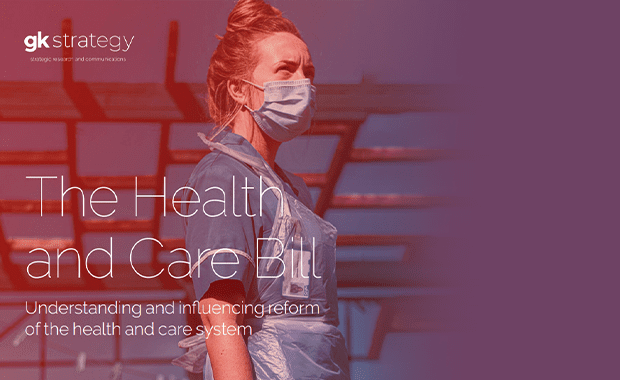The Omicron variant, parliamentary scrutiny and a distracted Government are all hindering the development of Integrated Care Systems (ICSs) and there are concerns about the framework that sits around them.
Amidst the capacity and workforce pressures faced by the health service this winter, longer-term ambitions for the transformation of our health and care system are also feeling the strain.
The timelines for formalisation and statutory responsibility of the 42 Integrated Care Systems (ICSs) in England have been pushed back. The intention is now for them to be given their full statutory responsibilities by 1st July this year rather than 1st April as originally planned. The primary reason given for this delay is to allow parliament an acceptable amount of time to review and approve the proposed changes.
Even with this extension, there is growing frustration that this wholescale reconfiguration of the health system is not being accompanied by the required due diligence and planning.
The Health and Care Bill – the legislation that will enable these reforms – has reached the House of Lords and the early signs are the Government are in for a bumpy ride.
It’s times like this where the second chamber can demonstrate both its value and its limitations. More sector specialists, less constrained by time pressures and careerism often makes for a better assessment of the changes proposed. Any substantive improvements to the legislation are likely to come from the Lords, the challenge or opportunity depending on your perspective is that any amendments must be approved by the Commons, where the Government has a strong majority and can whip MPs effectively. Therefore, sensible Lords amendments may well be reversed prior to the Bill receiving Royal Assent.
The concern for the Government is that the Lords are starting to highlight that the legislation is poorly planned and drafted. In the Autumn of 2021, Health Secretary Sajid Javid admitted that “significant areas of contention” had yet to be resolved with the reconfiguration of the health system the Bill and he’s being proved right.
The initial assessment from the Lords has been both scathing and embarrassing for the Government. the Delegated Powers and Regulatory Reform Committee has stated that the Bill “falls so short of the standards which the Committee — and Parliament — are entitled to expect” and the legislation is a perfect example of a wider issue of “how much disguised legislation a Bill can contain and offends against the democratic principles of parliamentary scrutiny”.
Furthermore, just as the Bill was due to begin its Committee Stage the Lords Shadow Health Spokesperson, Baroness Thornton, also identified that proceedings couldn’t legally begin without an impact assessment related to parts of the legislation. The Government has apologised for the oversight and the very short notice that they were shared.
Taken together, these issues all add to the impression that the reforms are being rushed through, at a time of extreme pressure on the health system with not enough evaluation of the impact and practical implementation of new powers and accountabilities. The biggest concern among those who favour greater health devolution is that the Bill will reinforce the instinctive tendencies of the government and NHSE towards greater centralisation and prescription, and continued NHS dominance of the health and care agenda.
During January and early February 2022, the Lords will undertake a line-by-line examination and vote on each clause of the legislation – including the long list of amendments tabled by Peers.
Trying to predict which amendments will garner enough support is difficult – let alone which the Government may concede on – but topics that have high profile backers and cross-party support include:
- The extent of Ministerial control – Limiting the so-called ‘power grab’ by the Health Secretary as part of this bill – the extension of powers will enable the Minister to intervene directly on local and regional health matters. This is being opposed by Opposition parties and prominent NHS representative bodies such as NHS Confederation.
- Workforce planning and updates – there is strong cross party and cross chamber backing for Regular, independent and public workforce projection data. Former Health Secretary, and Chair of the Health and Social Care Select Committee Jeremy Hunt tabled an amendment in the Commons and the Lords will now try to force the issue again.
- Mental health funding – former NHS England Chief Executive – now crossbench peer – Sir Simon Stevens has proposed amendments that require government, NHSE and ICSs to publish mental health spending detail including whether spending was increasing as a share of overall funding.
- Parity of esteem for mental health is still a work in progress and despite this being an emotive issue with an increasing demand for services, it is unlikely that the Government will tie itself to this type of funding scrutiny given the financial pressures faced across the board.
Of course, it’s not just the Parliamentarians that are frustrated, many ICS leaders – preparing to go live with their accountable duties – only found out about the delay via third party sources with the Department of Health & Social Care and NHS England’s communications leaving much to be desired. Louise Patten, Chief Executive of NHS Clinical Commissioners recently outlined that that the delay causes confusion about local leadership responsibilities and partnership working with local government and threatens accountability.
Moreover, the delay in publication of the Integration White Paper, further guidance on developing place-based Integrated Care Partnerships and the Levelling Up White Paper also means that many areas are continuing to develop new local partnership governance arrangements in the absence of a national policy framework.
And of course, all of this hugely matters to patients, the healthcare workforce and organisations trying to supply the health system with the services and technology it needs.
Organisations with a stake in health care delivery need to ensure that they monitor the passage of this legislation and importantly seek the practical understanding of where accountability and commissioning responsibility lies within ICS ‘footprint’ regions.
For further information about the implementation and impact of ICS’, please email joecormack@gkstrategy.com






